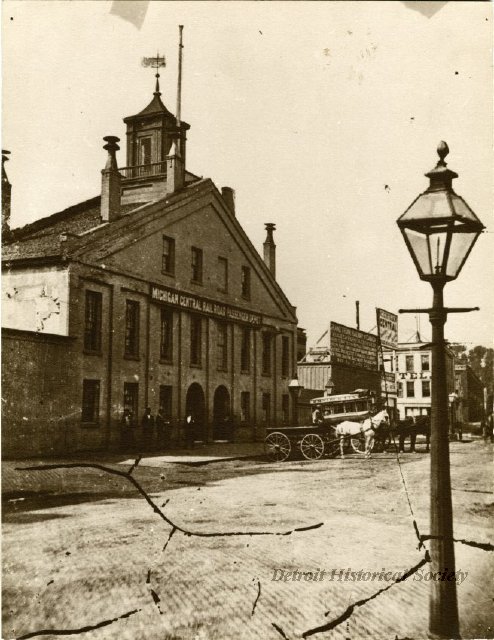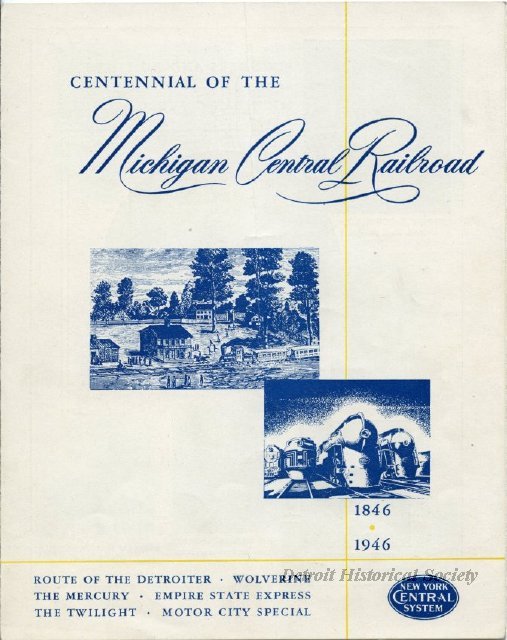Michigan railroad magnate James Frederick Joy was known to be a captivating speaker and shrewd businessman, and was a leader in the North American railroad industry during its early years.
Joy was born in Durham, New Hampshire on December 2, 1810 and attended Dartmouth College and Harvard Law School. After graduating in 1836, Joy moved to Detroit just before it became Michigan’s state capitol. There he formed the law firm of Joy & Porter with George F. Porter. The firm was chosen as legal counsel for the Bank of Michigan in 1838. That same year, he was selected to be school inspector for the City of Detroit, further adding to his rapidly expanding resume.
Joy’s entry into the railroad business came after the State of Michigan, which had purchased the Detroit & St. Joseph Railroad in 1837, went bankrupt in 1846 and was forced to sell off public works to meet its debt. Joy found an investor in John M. Forbes, brokered the purchase of the Detroit & St. Joseph Railroad, also called Central Railroad, and officially renamed it the Michigan Central Railroad (MCRR). The plan was to construct a line to Chicago.
Acting as legal counsel for the new railroad, Joy bought out numerous railroads crossing Indiana, but Illinois laws blocked him there. Joy was able to break the stalemate with the aid of a bright young lawyer, Abraham Lincoln. Working together on the case sparked a friendship between the two that continued for life.
Joy also agreed to serve as legal counsel for the American locks project at Sault Sainte Marie, completed in 1855. Because of his growing influence throughout the state, and despite his initial objections, he was elected as the Detroit representative to the Michigan legislature in 1861. The same year, he won an important land dispute case in Chicago for the Michigan Central, gaining him national recognition as a top railroad litigator. In 1867 he was elected president of the MCRR, a position he held for ten years.
Responsible for over 1,600 miles of track in Michigan alone, Joy oversaw the expansion of railways through various states and Canada, even overseeing the construction of the first railway bridge over the Missouri River. His dominance of the railroad industry in the region earned him enemies, however, and in 1877 a contingent led by William H. Vanderbilt attempted a takeover of the MCRR and Joy left the presidency. Vice president Samuel Sloan ascended to the position for one year, until Vanderbilt was voted in as president in 1878.
He later became president of the Detroit Post & Tribune and a president and director of the Wabash, St. Louis & Pacific Railroad, and formed the Detroit Union Depot Company to manage its local assets. Joy remained an important influence in the Detroit business community - a son from his second marriage, Henry Bourne Joy, was president of the Packard Motor Car Company. James Joy died on September 24, 1896 and is buried in Elmwood Cemetery.

